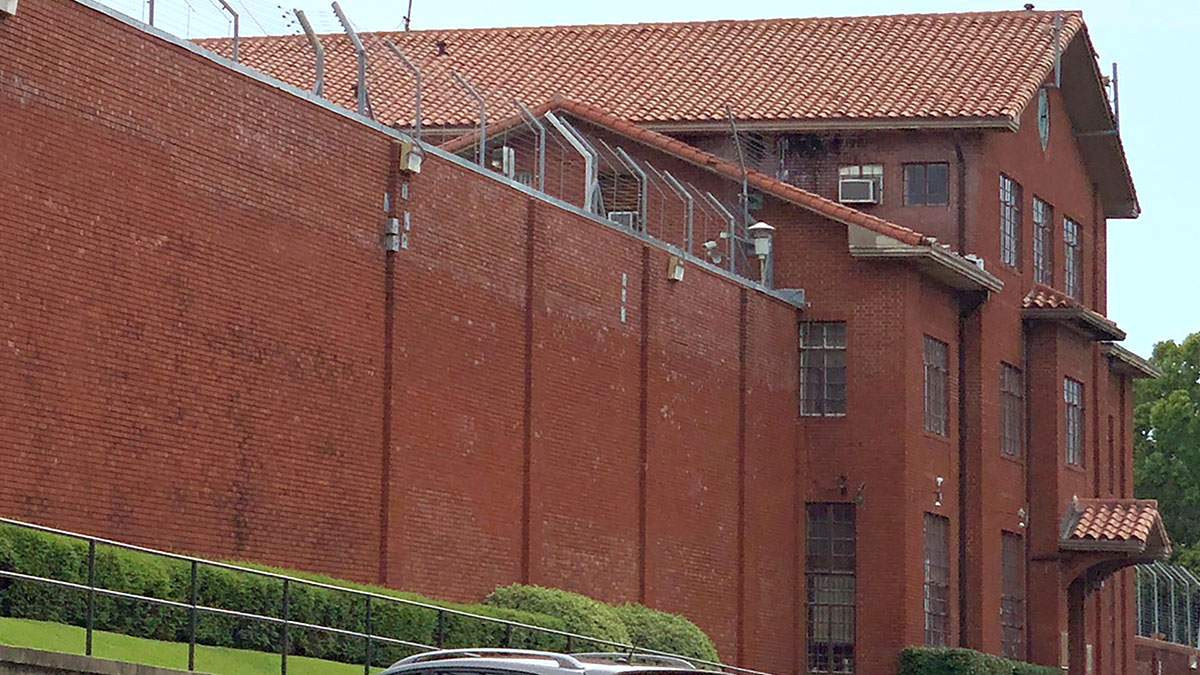The Texas “junk science” law allows for new trials, especially in older cases. In Roberson’s case, attorneys have argued that shaken baby syndrome is “junk science.” NBC 5’s Alanna Quillen tells us more.
House members were successful in halting the execution of Texas death row inmate Robert Roberson III. The Supreme Court of Texas granted a stay late Thursday night.
"We are deeply grateful to the Texas Supreme Court for respecting the role of the Texas legislature in such consequential matters. We look forward to welcoming Robert to the Texas Capitol, and long with 31 million Texans, finally giving him -- and the truth -- a chance to be heard," Texas House Criminal Jurisprudence Committee chairmen Joe Moody and Jeff Leach said in a joint statement Thursday night.
Get top local stories in DFW delivered to you every morning. Sign up for NBC DFW's News Headlines newsletter.
Roberson was scheduled to be executed by lethal injection at about 6 p.m. Thursday, for the 2002 death of his 2-year-old daughter.
The state's legal fight to get the execution carried out faced a midnight CDT deadline when the death warrant authorizing Roberson's execution expired.
The Texas Department of Criminal Justice said late Thursday night that Roberson will be moved back to the Polunsky Unit in Livingston, Texas.
"I had the opportunity to go back there to speak with him, and he was shocked to say the least. He praised God, to thank his supporters," said Amanda Hernandez with the TDCJ.
Roberson was convicted in 2003 of shaking his daughter, Nikki Curtis, to death in a diagnosis known as shaken baby syndrome. Roberson's attorneys said new evidence suggests that's not what killed the little girl and that his life should be spared.
The stay came after a flurry of legal proceedings Thursday and the Supreme Court of the United States denying a stay for Roberson. The high court said it would be up to Gov. Greg Abbott to stop the execution with a 30-day stay.
TEMPORARY RESTRAINING ORDER FILED IN ATTEMPT TO HALT EXECUTION
On Wednesday, the Texas Board of Paroles and Pardons declined to recommend clemency, and Texas Gov. Greg Abbott cannot grant it without that recommendation. Abbott could still issue a one-time 30-day stay of execution, and while he's been active on social media Thursday, he's been silent about the upcoming execution.
In a daylong hearing Wednesday, the Texas House Committee on Criminal Jurisprudence unanimously passed a motion to subpoena Roberson after hours of testimony from experts who recently reviewed his 2003 conviction. The committee found relevant scientific evidence is available today that was not available at the time of Roberson's trial that would be admissible under current rules.
But the subpoena alone was not enough to stop the execution. House members on the committee filed a temporary restraining order on Thursday attempting to prevent the Texas Department of Criminal Justice from proceeding with the execution until the subpoena can be carried out and Roberson testifies in a hearing next week. A district judge granted that TRO.
TEXAS ATTORNEY GENERAL'S OFFICE APPEALS TRO
The Texas Attorney General's Office appealed the TRO immediately.
Late Thursday, the state's highest criminal court overruled a Travis County judge's TRO.
NBC 5 has asked the TDCJ whether the execution is delayed pending that appeal, and it indicated the execution is delayed pending the outcome of legal proceedings.
LAWMAKERS APPEAL TO TEXAS SUPREME COURT
Thursday night the same lawmakers who filed the subpoena and the TRO took their appeal to the Supreme Court of Texas.
"Our current pleading in front of the Texas Supreme Court is truly the last chance to push a pause on his execution," Rep. Jeff Leach, R-Plano told NBC 5 Thursday night.
Leach indicated the execution couldn't proceed until there was a ruling on the appeal.
"It's unbelievable that we're at this point, given the unprecedented hearings that we saw yesterday take place in the Texas legislature, given the widespread bipartisan support, and just really overwhelming support from so many people coming forward, recognizing that this is such a problematic case that Robert has a strong claim of innocence, and if this execution goes forward, Texas is going to be executing a man for a crime that never occurred,” said Vanessa Potkin, director of special litigation for the Innocence Project on Thursday. “Mr. Roberson is a man of deep faith. He has sustained himself through his faith prayer and he is just so moved by the overwhelming support.”
SUPREME COURT REFUSES TO WEIGH IN ON CASE
Meanwhile, on Thursday, the United States Supreme Court said despite saying credible evidence of his innocence has been raised it could not grant a stay in the case. Justice Sonia Sotomayor said that Roberson's only avenue for a reprieve was with the governor, who had the authority to grant pardons and delay executions.
"An executive reprieve of 30 days would provide the Texas Board of Pardons and Paroles with an opportunity to reconsider the evidence of Roberson’s actual innocence. That could prevent a miscarriage of justice from occurring: executing a man who has raised credible evidence of actual innocence," Sotomayor wrote.
If the execution is carried out, Roberson would be the first person in the United States executed for a murder conviction tied to a diagnosis of shaken baby syndrome.



